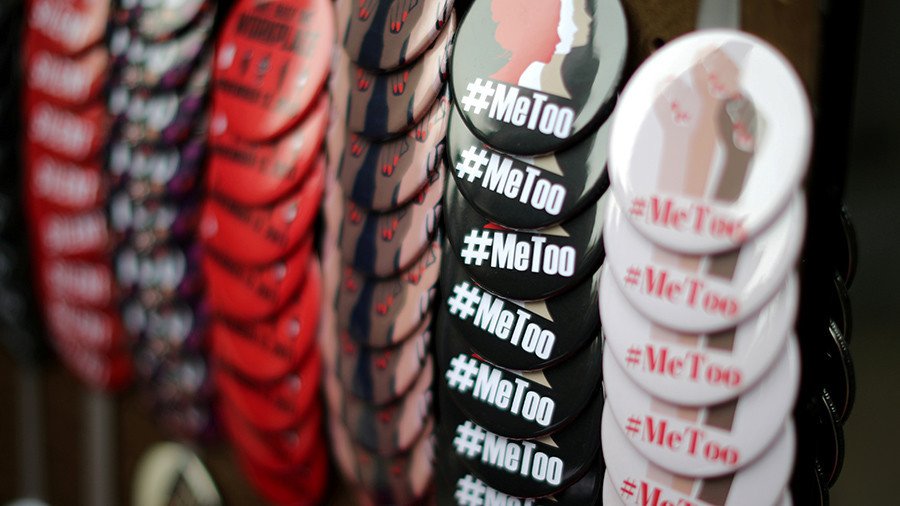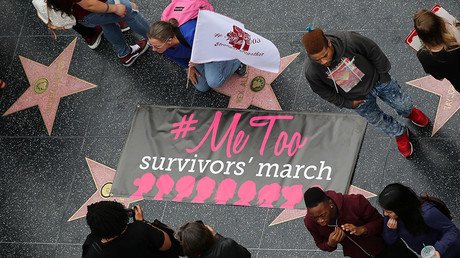Sex and ’68: Liberal movement revolutionized ‘sexuality’ but at what cost?

This year marks half a century since the May 1968 events in Paris (and elsewhere) which launched a youth-driven liberal movement that changed the world.
Thus, now is a good time to reflect upon the similarities and differences between the sexual liberation and feminism of the 1960’s and the protest campaigns that flourish today, from LGBT+ to #MeToo.
In the aftermath of ‘68, the French “progressive” press published a whole series of petitions demanding the decriminalization of paedophilia, claiming that in this way the artificial and oppressive culturally-constricted frontier that separated children from adults could be abolished and the right to freely use one’s body be extended also to children. They claimed that only dark forces of “reaction” and “oppression” could oppose this measure and among the signatories were iconic cultural figures such as Sartre, de Beauvoir, Derrida, Barthes, Foucault, Aragon, Guattari, Deleuze and Lyotard.
Today, however, paedophilia is perceived as one of the worst crimes imaginable and, instead of fighting for it in the name of anti-Catholic progress, it is mostly associated with the dark side of the Catholic Church itself. Which means that fighting against paedophilia is today a progressive task directed at the forces of reaction.
And the funniest victim of this shift was the politician Daniel Cohn-Bendit, still living in the old spirit of the 60’s, who recently described, in an interview, how while in his younger years, when he worked in a kindergarten, he regularly played masturbatory games with young girls.
Subsequently, to his surprise, he faced a brutal backlash, with many voices demanding his removal from the European parliament and legal prosecution.
Changing Mores
The gap separating the ’68 sexual liberation from today’s struggle for sexual emancipation is clearly discernible in a recent polemical exchange between Germaine Greer and some feminists who critically reacted to her negative remarks concerning #MeToo. Their main point was how, while Greer’s main thesis – that women should sexually liberate themselves from male domination and assume active sexual lives without any recourse to victimhood – was valid in the sexual-liberation movement of the 1960s, today the situation is different.
And what has happened, in between, is that the sexual emancipation of women (i.e. their ability to freely assume a social life as active sexual) was itself commodified. While it’s true to say women are no longer perceived as passive objects of male desire, it’s also the case that their active sexuality itself now equates (in male eyes) to their permanent availability and readiness to engage in sexual interaction.
In these new circumstances, forcefully saying NO isn’t considered mere self-victimization since it implies the rejection of this new form of sexual subjectivization of women, and demands women not only passively submit to male sexual domination but act as if they actively want it.
Who’s to Blame?
While there is a strong element of truth in this line of argument, one should nonetheless also admit how problematic it is to anchor one’s political demands to status of victimhood. Is the basic characteristic of today’s subjectivity not the weird combination of the free subject who believes themselves ultimately responsible for their own fate and the subject who bases their argument on their status as a victim of circumstances beyond their own control? Every contact with another human being is experienced as a potential threat – if the other smokes, if he casts a covetous glance at me, he already hurts me; this logic of victimization is today universalized, reaching well beyond the standard cases of sexual or racist harassment.
For instance, think of the growing financial industry around paying damage claims. This notion of the subject as an irresponsible victim involves the extreme Narcissistic perspective: every encounter with the Other appears as a potential threat to the subject's precarious balance. The paradox is that, in today's predominant form of individuality, the self-centred assertion of the psychological subject paradoxically overlaps with the perception of oneself as a victim of circumstances.
Billionaire ‘Leftists’
One cannot shed the suspicion that the Politically Correct cultural Left is getting so fanatical about advocating “progress,” and fighting new battles against cultural and sexist “apartheids,” to cover up its own full immersion into global capitalism. This is the space where LGBT+ and #MeToo meet Tim Cook and Bill Gates.
How did we come to this? As many conservatives have noticed (and they are right here), our time is marked by the progressive disintegration of a shared network of customs which ground what George Orwell approvingly referred to as “common decency.”
Today, these standards are dismissed as a yoke that subordinates individual freedom to some proto-Fascist, organic social forms. In such a situation, the liberal vision of minimalist laws (which should not regulate social life too much but just prevent individuals encroaching upon - or “harassing” - each other) reverts into an explosion of legal and moral rules, and into an endless process of legal argument and moralization, which is labelled as “the fight against all forms of discrimination.”
In the aftermath of #Weinstein’s downfall, we at risk of broadening the definition of sexual harassment too widely (Op-Ed by Danielle Ryan) https://t.co/H7LXxv9DoX
— RT (@RT_com) November 8, 2017
If there are no shared mores that are allowed to influence the law, only the fact of “harassing” other subjects, then a new question arises. Who – in the absence of such mores – will decide what counts as “harassment”?
After all, in France we see associations of obese people which demand that all public campaigns against obesity and for healthy eating habits be stopped, since they hurt the self-esteem of obese persons. Meanwhile, the militants of “Veggie Pride” condemn the “specieism” of meat-eaters (who discriminate against animals, privileging humans – for them, a particularly disgusting form of “fascism”) and demand that “vegetophobia” should be treated as a kind of xenophobia and proclaimed a crime. And so on and so forth, until perhaps one day the debate reaches things like incest-marriage, consensual murder and cannibalism.
Free-For-All
The problem here IS the obvious arbitrariness of the ever shifting rules. Let us take child sexuality: one can argue that its criminalization is an unwarranted discrimination, but one can also argue that children should be protected from sexual molestation by adults.
And we could go on here: the same people who advocate the legalization of soft drugs usually support the prohibition of smoking in public places; and the same folk who protest against the patriarchal abuse of small children in our societies, worry when someone condemns members of foreign cultures who live among us for doing exactly this (say, the Roma people preventing children from attending public schools), claiming that this is a case of meddling with other “ways of life.”
It is thus for necessary structural reasons that this “fight against discrimination” is an endless process endlessly postponing its final point, a society freed of all moral prejudices which, as Jean-Claude Michea put it, “would be on this very account a society condemned to see crimes everywhere.”
[Several sections of this article have been excerpted from previous publications by Slavoj Žižek.]
The statements, views and opinions expressed in this column are solely those of the author and do not necessarily represent those of RT.


















